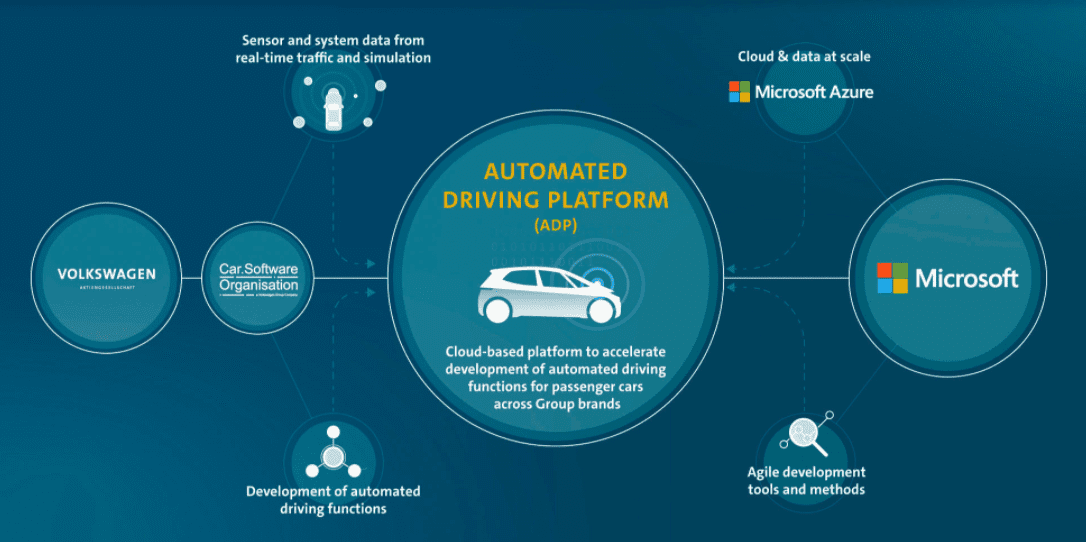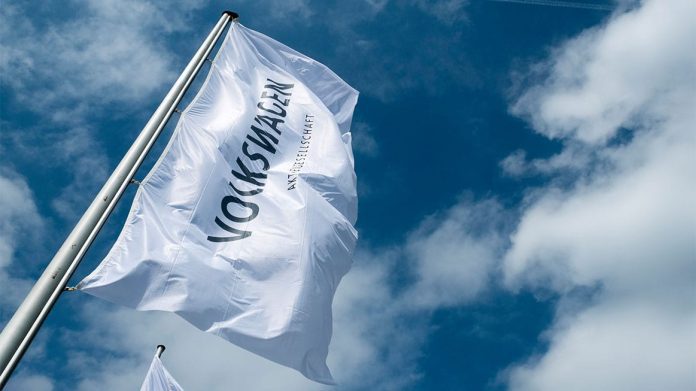Volkswagen Group is to build a cloud-based ‘automated driving platform’ on Microsoft Azure to accelerate development of advanced driver assistance systems (ADAS) and automated driving functions for group car brands. Developers of vehicle-based IoT systems will be able to work off a single engineering environment, globally, it said.
Connected and automated driving systems (note, not ‘autonomous’), especially when combined with new mobility services, can improve passenger safety and traffic reduce congestion, said Volkswagen. But connected cars, backed by smart cloud-based data management, require large-scale computational capabilities — “petabytes of data, from road and weather conditions, obstacle detection, and driver behaviour,” it said in a statement.
The German car maker will use the US firm’s cloud-based computing to “train, simulate, and validate” these new driver-assistance functions. It stated: “Machine learning algorithms that learn from billions of real and simulated miles driven are key to connected driving experiences.”
The group’s new software division, called Car.Software Organisation, and founded last year, has conceived the new ‘automated driving platform’ (ADP) as a single database, comprising real traffic and simulation data from the group’s vehicles, to “simplify” the developer “experience” and “leverage” the “learnings from miles driven”. The platform will reduce the development cycles “from months to weeks”, and “efficiently manage the huge amount of data”, it said.
By 2025, Volkswagen said it will have invested around €27 billion “in digitalization” and increased the proportion of in-house software development in the car to 60 percent from 10 percent today.
Volkswagen has been using Microsoft since 2018 to pull together its digital services and mobility offerings from across its brands on a single VW ‘automotive cloud’ (VW.AC) platform. The group’s Seattle-based engineering team has since enabled data to be exchanged between vehicles and the cloud through Azure edge services, and vehicle updates and new features to be delivered over the air, independently of vehicle hardware.
The first VW.AC connected test fleets are expected to hit the road in 2021; production rollout is planned for 2022. New ADAS and automated driving functions developed on top of the Azure-based ADP will be tested, deployed, and managed across all VW.AC connected vehicles.
Dirk Hilgenberg, chief executive of the Car.Software Organisation, said: “We are building the ADP with Microsoft to simplify our developers’ work through one scalable and data-based engineering environment. By combining our comprehensive expertise in the development of connected driving solutions with Microsoft’s cloud and software engineering know-how, we will accelerate the delivery of safe and comfortable mobility services.”
Scott Guthrie, executive vice president of ‘cloud + AI’ at Microsoft, said: “This is the next evolution of our foundational work with the Volkswagen Group to enhance its transformation as a software-driven mobility provider. The power of Microsoft Azure and its compute, data and AI capabilities will enable Volkswagen to deliver secure and reliable automated driving solutions to their customers faster.”


